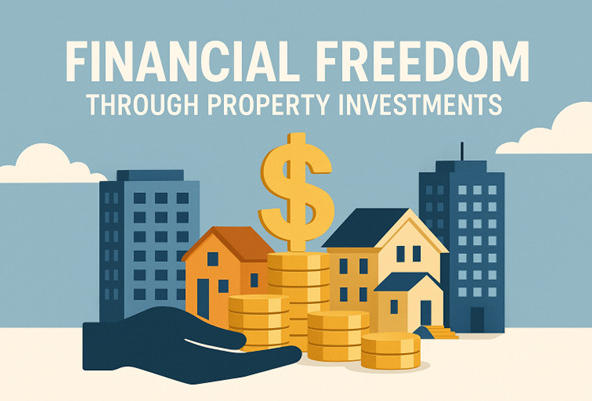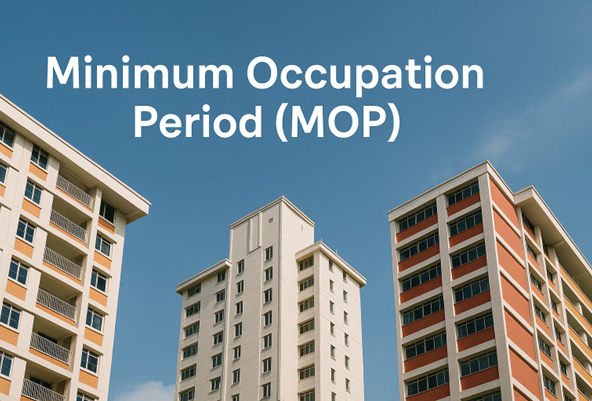
How Singapore’s Tech Parks Are Redefining Innovation and Sustainability
Singapore has firmly positioned itself as a global innovation powerhouse, earning a reputation as the go-to destination for tech-driven advancements and forward-thinking development. This transformation didn’t happen overnight.
Through a combination of strategic urban planning, government-backed initiatives, and relentless commitment to technology, Singapore has become a hub where innovation meets opportunity. From hosting cutting-edge research facilities to attracting multinational corporations, the nation has become a hotspot for businesses seeking growth and innovation.
Tech parks and innovation hubs are at the heart of this progress, which play a crucial role in shaping Singapore’s commercial real estate landscape. These spaces are more than just business centres—they’re thriving ecosystems that bring together talent, technology, and collaboration.
Examples like one-north and the Jurong Innovation District illustrate how these hubs combine smart infrastructure with sustainability to support industries like advanced manufacturing, biotechnology, and artificial intelligence.
Singapore’s government has been a driving force behind this success. Initiatives such as the Singapore Green Plan 2030 and the JTC Industrial Redevelopment Programme reflect the nation’s commitment to fostering innovation.
By integrating eco-friendly infrastructure with state-of-the-art facilities, Singapore is paving the way for a sustainable, tech-centric future, ensuring its position as a global leader in commercial real estate innovation.
The Role of Tech Parks and Innovation Hubs in Singapore’s Economy
Boosting the Digital Economy
How one-north and Jurong Innovation District Drive Economic Growth
Tech parks like one-north and Jurong Innovation District are designed to power Singapore’s digital transformation. One-north, a 200-hectare innovation hub, is home to over 400 companies, fostering growth in sectors like biomedical sciences, media, and IT.
Meanwhile, the Jurong Innovation District focuses on advanced manufacturing, Industry 4.0, and smart technology, blending research, prototyping, and production into a single ecosystem.
Contribution to GDP and Job Creation
These hubs are integral to Singapore’s economic performance. As of 2022, the digital economy contributed 17.3% of Singapore’s GDP, a figure largely supported by innovation districts. In addition, they create thousands of high-value jobs, attracting global talent and upskilling the local workforce in cutting-edge fields such as robotics, AI, and biotechnology.
Fostering Collaboration and Innovation
Creating Collaborative Ecosystems
Tech parks are not just spaces for work—they are collaborative ecosystems. Facilities like co-working spaces, state-of-the-art research labs, and business accelerators enable companies to share resources and develop groundbreaking solutions. For example, the Singapore Science Park integrates workspaces and labs to drive innovation across industries.
Success Stories from Singapore’s Tech Hubs
Innovation hubs have birthed numerous success stories. One notable example is Grab, which started in Singapore’s tech ecosystem before becoming Southeast Asia’s leading super-app. Its growth highlights how these hubs nurture start-ups with access to cutting-edge technology, funding, and collaboration opportunities.
Key Tech Parks and Innovation Hubs in Singapore

One-north: The Epitome of Integration
A Unique Blend of Research, Business, and Lifestyle
Spanning 200 hectares, one-north is a meticulously planned innovation hub that seamlessly integrates research facilities, commercial spaces, and lifestyle amenities. Located in Buona Vista, it’s designed as a live-work-play ecosystem, making it a hub for talent and innovation.
Industries Thriving in One-north
One-north hosts a diverse range of industries, including biomedical sciences, engineering, and media. With notable tenants like A*STAR and global pharmaceutical giants, it fosters collaboration between academia and industry leaders, driving groundbreaking advancements in fields like biotechnology and digital media.
Jurong Innovation District: The Smart Industrial Park
Focus on Advanced Manufacturing and Industry 4.0
The Jurong Innovation District (JID) is at the forefront of industrial innovation, focusing on advanced manufacturing and technologies underpinning Industry 4.0. It serves as a one-stop hub for research, prototyping, and production.
Integration of Workspaces and Community Zones
JID exemplifies a smart urban development model, combining high-tech workspaces with residential areas and community spaces. This integration supports a vibrant environment where professionals and innovators can collaborate and thrive.
Singapore Science Park: Where Work Meets Play
A Mini-City Concept with Lifestyle Integration
The Singapore Science Park embodies a “mini-city” concept, providing cutting-edge infrastructure alongside lifestyle amenities like gyms, restaurants, and green spaces. This unique setup encourages a balance between work and well-being.
Targeted Industries and Notable Tenants
The park focuses on industries such as life sciences, data analytics, and information technology. With tenants like GlaxoSmithKline and DHL, it has become a hub for multinational corporations seeking innovation-driven environments.
Upcoming Developments
Future Tech Parks Under the Singapore Green Plan 2030
Singapore’s future developments under the Green Plan 2030 aim to integrate sustainability with innovation. Upcoming tech parks will feature green buildings, renewable energy solutions, and advanced connectivity.
Opportunities for Businesses and Investors
These developments open doors for businesses and investors to tap into Singapore’s forward-thinking ecosystem. As demand for sustainable and smart workspaces grows, these parks will serve as key assets for businesses seeking long-term growth in Southeast Asia.
The Features and Benefits of Tech Parks

Sustainable Infrastructure
Green Initiatives for a Greener Future
Tech parks in Singapore are at the forefront of sustainable development. These hubs incorporate energy-efficient buildings, solar-powered facilities, and smart water management systems to minimise their environmental impact. For example, Jurong Innovation District employs renewable energy sources and green landscaping to align with the nation’s sustainability goals.
Alignment with the Singapore Green Plan 2030
Singapore’s Green Plan 2030 plays a pivotal role in shaping the infrastructure of tech parks. This nationwide initiative aims to reduce carbon emissions and encourage sustainable urban development, ensuring that tech parks not only support innovation but also contribute to environmental conservation.
Smart Technology Integration
Optimising Efficiency with Smart Solutions
Tech parks leverage cutting-edge technologies like IoT (Internet of Things) and AI to enhance operational efficiency. Smart sensors monitor energy use, while AI-powered systems streamline building maintenance and optimise resources.
Enhanced Connectivity and Data-Driven Operations
High-speed connectivity and data integration are standard features of Singapore’s tech parks. This fosters seamless communication between tenants and supports advanced operations, from autonomous vehicles to predictive maintenance systems.
Lifestyle-Oriented Workspaces
Blending Leisure and Work for Talent Retention
Tech parks are designed to attract and retain top talent by creating workspaces that integrate leisure. Modern amenities such as gyms, cafes, and green spaces provide a balanced environment that prioritises employee well-being.
Examples of Amenities
Facilities like those in one-north and Singapore Science Park include vibrant cafes, yoga studios, and even recreational parks. These lifestyle-oriented features make tech parks not just places to work but communities to thrive in.
Investment Opportunities in Tech Parks and Innovation Hubs

Attracting Global Tenants
Tech Companies and MNCs in Singapore
Singapore’s tech parks are magnets for global companies, from start-ups to multinational corporations (MNCs). Leading names like Google, Meta, and Grab have established their presence in hubs like one-north and Singapore Science Park, leveraging the country’s robust infrastructure and business-friendly environment. This influx of tenants creates a thriving market for commercial real estate investments.
Gateway to Southeast Asia
As a strategic gateway to Southeast Asia, Singapore offers unparalleled access to a market of over 650 million people. Tech parks provide the perfect launchpad for companies looking to expand into the region, making them highly attractive to international investors and businesses.
Commercial Real Estate Trends
Rising Demand for Flexible Spaces
The demand for flexible office spaces and specialised research facilities has surged in recent years. Tech parks now feature modular spaces that cater to hybrid working models, blending remote work capabilities with collaborative environments.
Hybrid Work Models Driving Development
The hybrid work trend is influencing the design of tech parks. Features like shared workspaces, advanced conferencing facilities, and wellness-focused amenities have become must-haves, driving up demand for these innovative spaces.
Government Incentives
Grants and Tax Benefits
Singapore’s government actively encourages investments in tech parks through grants and tax incentives. Programmes like the JTC Industrial Redevelopment Programme offer financial support for redevelopment projects, making it easier for businesses to establish themselves in innovation hubs.
Support for Sustainable and High-Tech Developments
Government initiatives also focus on promoting sustainability and technology integration. Investors benefit from policies that support green building certifications and smart infrastructure, ensuring long-term value for their assets.
Challenges and Considerations
Balancing Growth and Sustainability
Eco-Friendly Practices Under Pressure
As demand for tech parks in Singapore grows, maintaining sustainability while scaling operations has become a significant challenge. While initiatives like green building certifications and renewable energy use are widely implemented, the need for rapid expansion often puts pressure on eco-friendly practices.
For instance, integrating sustainable water and energy systems in large-scale developments like Jurong Innovation District requires substantial investment and long-term planning. Balancing economic growth with environmental priorities remains a delicate task.
Competition Among Regional Hubs

Singapore vs. Regional Competitors
Singapore’s tech parks are world-class, but regional competitors like Shenzhen and Bengaluru offer stiff competition. Shenzhen’s tech zones are known for their massive scale and proximity to China’s manufacturing backbone, while Bengaluru boasts a thriving IT ecosystem at lower operational costs.
However, Singapore counters these advantages with its political stability, top-notch infrastructure, and strategic location as a hub for Southeast Asia. The competition drives continuous innovation, pushing Singapore to stay ahead through smarter designs and enhanced facilities.
Cost and Accessibility Concerns
High Operational Costs
Singapore’s tech parks are premium developments, which often come with high rental and operational costs. This can pose challenges for smaller businesses and start-ups looking to establish themselves in these hubs.
Making Tech Parks More Inclusive
To address these concerns, initiatives like the JTC Industrial Redevelopment Programme offer subsidies and co-working spaces to make tech parks more accessible to SMEs and start-ups. Additionally, flexible leasing models and shared facilities are being introduced to lower entry barriers.
The Future of Tech Parks and Innovation Hubs in Singapore
Focus on Digitalisation and AI
Preparing for the AI Revolution
Singapore’s tech parks are gearing up for the next wave of technological advancements by embracing artificial intelligence (AI) and digital transformation. Future developments will incorporate AI-driven systems to optimise operations, from predictive maintenance to energy management. Automation will play a key role, streamlining processes across industries like manufacturing and logistics.
The Role of Data Centres in Future Hubs
Data centres are set to become integral to future tech parks, supporting the growing demand for cloud computing, big data, and machine learning applications. Facilities like the Jurong Innovation District already include high-tech infrastructure to support these technologies, paving the way for a more connected and data-centric ecosystem.
Expanding Global Reach
Attracting Global Tech Leaders
Singapore is implementing strategies to attract top-tier global players, including offering tax incentives and robust intellectual property protections. With its strategic location, the nation serves as a launchpad for businesses aiming to access Southeast Asia’s rapidly growing market.
Collaborations with Neighbouring Countries
Regional partnerships are also on the rise. By collaborating with countries like Malaysia and Indonesia, Singapore can leverage cross-border talent and resources, enhancing its appeal to multinational corporations.
Impact on Urban Planning
Innovation Hubs Driving Urban Development
Tech parks are reshaping Singapore’s urban landscape, seamlessly integrating with housing, transport, and recreational facilities. For instance, projects like one-north blend residential areas with workplaces and green spaces, fostering a sense of community.
Boosting Liveability Through Integration
Future innovation hubs will continue to prioritise liveability, with features like efficient public transport, walkable neighbourhoods, and lifestyle amenities. These developments ensure that tech parks not only drive economic growth but also enhance the overall quality of urban life.
Beyond Innovation: A Bold Vision for Singapore’s Tech Hubs
Singapore’s tech parks and innovation hubs are more than just spaces—they are dynamic ecosystems driving the future of technology, sustainability, and collaboration.
As the nation continues to integrate AI, smart technologies, and sustainable practices into these hubs, they are set to become global benchmarks for innovation. With world-class infrastructure, strategic government initiatives, and a thriving digital economy, Singapore is not just adapting to the future—it’s defining it.
From fostering cutting-edge advancements in AI and robotics to nurturing start-ups that could become tomorrow’s unicorns, these hubs encapsulate the endless possibilities of a connected, forward-thinking world. For investors, businesses, and innovators, Singapore offers an unparalleled environment to thrive, collaborate, and grow.
The journey doesn’t stop here—Singapore’s commitment to digitalisation, sustainability, and global collaboration ensures that its tech parks and innovation hubs will remain at the forefront of global innovation. Whether you’re looking to invest, expand, or create, Singapore is where the future unfolds, one groundbreaking idea at a time.


